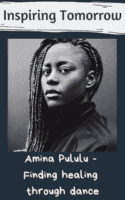You may remember Ajay Esterhuizen from our December 2017 series, where he shared how he became a medic. In case, you missed it you can read all about how he became a medic here. Three years later, Ajay finds himself on the frontline, an essential worker in the midst of the COVID-19 pandemic. Read about how he copes, the dangers and joys of his job, and his tips on how to stay safe during this time.
Tamica Mopp: Describe a typical day on the road.
Ajay Esterhuizen: There is no such thing as a typical day. Each day presents a different challenge, different scenarios, and different outcomes. It can range from being a completely quiet day, to a day packed with life or death decisions back to back. From a peaceful day, to one packed with verbal or physical abuse. It can range from a day full of successful treatments to a day where things don’t go the way you planned. Never the same.
TM: What’s the worst call you’ve received?
AE: Dealing with a rape case that I could do nothing about, witnessing the emotional trauma, dead silence, and a blank stare.
TM: This job can be stressful. What do you do to stay calm?
AE: You have to remember that you are it, the buck stops with you. And if you don’t remain calm, the whole scene turns to chaos.
TM: Describe a time you had to act professionally, despite your personal feelings.
AE: Many times patients refuse treatment even though they desperately need it to stay alive. To respect those wishes and walk away has never been easy. But it is required.
TM: As a medic, what has been the best part of your job?
AE: While I was in training for my Intermediate Life Support qualification, I was involved in a CPR in progress on a newborn of less than two hours old. I worked with a fantastic crew, who altogether did CPR for quite a couple of hours while waiting for the Neonatal ICU ambulance. We followed the ambulance to hospital, and in the hospital we were approached by the doctor who told us, this baby had no signs of brain damage, and was going to be perfectly okay. If it wasn’t for us the baby would not have made it through. And if we didn’t do the resuscitation as well as we did, the outcome would’ve been much less desirable. This news sent chills down my spine.
TM: Have you encountered anyone infected with COVID-19?
AE: I’ve only dealt with suspected cases, but my colleagues have dealt with quite a lot.
TM: Have you feared getting the virus?
AE: I think everybody fears subconsciously whether they admit it or not, but there is no place for fear in our job, because that would reflect in our work and might put our patients at a disadvantage. It’s a battle of the mind constantly, that we cannot afford to lose.
TM: What precautions do you take when dealing with people?
AE: I have equipped myself with high-risk gloves, an N95 breathing mask, and safety glasses at work.
TM: What motivates you or keeps you going?
AE: Every time you make a difference no matter how small it might be, you are reminded why you are here, every smile or laughter you generate, every successful resuscitation, every thank you from a family member or patient, every difference big or small.
TM: What safety measures should South Africans take to heart?
AE: As our leaders have mentioned, the best measures are to keep indoors as much as possible, only go to local shops for absolute necessities, and keep your hands clean. Never touch your face without washing your hands.
***
Tell us: How does Ajay’s work on the frontline inspire you?







